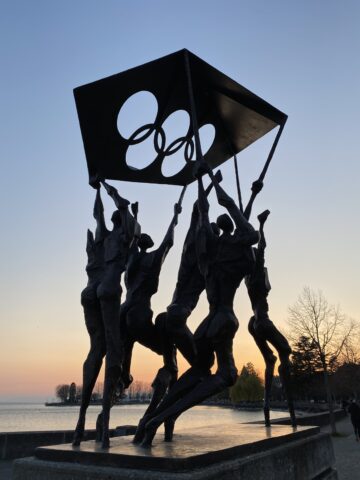FIFA PSC Jurisdiction to hear Set-off Claims for Damages Against Contractual Claims in Football Transfer Disputes
SFT 4A_420/2022, judgment of 30 March 2023 Cardiff City FC v. SASP FC de Nantes Motion to set aside the CAS Award CAS 2019/A/6594
Facts and procedure before the FIFA PSC
This case relates to the international transfer of the Argentinean football player Emiliano Sala to FC Cardiff (the Appellant) from FC Nantes (the Respondent, jointly referred to as the Parties) in January 2019 and his tragic plane crash which occurred shortly afterwards. The SFT judgment essentially relates to the scope of the arbitration clause between the parties to a transfer agreement but also to the interpretation of the scope of disputes that can be decided by the FIFA dispute resolution bodies and, subsequently, by the CAS.
The parties had agreed on a transfer price of EUR 17,000,000, to be paid in three installments, with the first installment of EUR 6,000,000 payable within five days after the registration of the player with FC Nantes. Hours after the finalization of the transfer agreement with the FIFA Transfer Matching System (TMS), the player tragically died in a plane crash over the English Channel.
FC Nantes filed a claim before the FIFA Players Status Chamber (PSC) requesting payment of the first instalment, but FC Cardiff argued that FC Nantes was liable for the circumstances that led to the player’s death, thus it intended to claim set-off for damages against the claims raised by FC Nantes. The FIFA PSC upheld FC Nantes’ claim and held that it had no jurisdiction to hear the claim for damages.

Interpretation of the contractual agreement by the CAS and the SFT
FC Cardiff appealed against the FIFA PSC decision to the CAS which dismissed the appeal. The CAS Panel bifurcated the procedure and decided, as preliminary matters, the validity of the transfer contract, the PSC and CAS jurisdiction to hear the claim for damages, and the possibility to extinguish a contractual claim by a set-off tort claim. After declaring that the transfer had already taken place before the player’s accident, the Panel held that neither the FIFA PSC nor the CAS had jurisdiction to rule on a claim of extra-contractual nature (i.e., the claim that FC Nantes was responsible for the player’s death).
In the subsequent appeal to the SFT, the Appellant invoked a violation of Art. 190 (2) (b) PILA considering that the CAS had erroneously interpreted the arbitration agreement enshrined both in the contract and in the FIFA regulations. In a very interesting analysis, the SFT reiterated the various principles of statutory interpretation applying to the regulations of large federations, such as FIFA.
The SFT confirmed the CAS view that its own jurisdiction could not go beyond the jurisdiction of the FIFA PSC. Even though Art. 377 para. 1 Swiss Code of Civil Procedure (CPC) provides for the right of the panel to deal with a counterclaim for damages, there were no reasons that justified the concurrent ruling on claims based on the transfer agreement and on (the unrelated) set-off against a tort claim (at 5.3). Notwithstanding the broad formulation of the arbitration agreement in the transfer contract (“Any dispute arising out of or in connection with this transfer agreement…”), the contract did not extend to the clearly distinct set-off claim for damages based on the plane crash.
Interpretation of the FIFA Regulations
Refraining from rendering a general judgment, and while acknowledging that it is in principle possible to invoke a claim for a set-off in international arbitration for indirectly related claims (cf. 4A_482/2010), the SFT then dismissed the Appellant’s arguments on the interpretation of the arbitration agreement based on the FIFA Regulations. In fact, and even though the latter reserve the possibility to file a counterclaim (asserting a set-off claim), the FIFA dispute resolution bodies are not “true” arbitral tribunals and, as such, they are not bound by the arbitration provisions enshrined in the Swiss Code on Civil Procedure (at 5.5.4).
Accordingly, the jurisdiction of the CAS Panel in appeal could not be broader than that of the association’s tribunal that had first ruled on the matter (in casu the FIFA PSC). After analyzing the pertinent FIFA regulations, the CAS – and the SFT – confirmed that the possibility to file a counterclaim before the FIFA PSC could not bind the latter to rule on any claim for damages raised in this context.
Employing various instruments of statutory interpretation, the SFT further confirmed the limited material scope of the FIFA PSC jurisdiction, which does not extend to ruling on civil disputes of football stakeholders that are unrelated to football. The timely limits for the rendering of the FIFA decisions along with a cap on the procedural costs were also considered in order to conclude that FIFA did not intend to include the hearing of complex and unrelated set-off claims by its dispute resolution bodies and, subsequently, by the CAS.
Other grievances: violation of the parties’ right to be heard and of material public policy
FC Cardiff further raised the issue of a violation by the Panel of the principle of equality of the parties for refusing to adjourn the hearing of its expert witness. Such plea was swiftly dismissed by the SFT to the extent that the Panel had included the expert report in the file and that such report was found to have no influence on the outcome of the proceedings. The SFT equally dismissed all other pleas on violation of the Appellant’s right to be heard, holding that the Panel had rejected – at least implicitly – the various arguments raised by the Appellant (at 7).
Finally, the SFT thoroughly dismissed the Appellant’s claim for violation of public policy alleging the Panel’s refusal “to examine (or even investigate) acts of corruption” (at 8.2.2). After reiterating the very restrictive scope of substantive public policy, the SFT held that such violation could only be admitted if the corruption had been established but the Panel still refused to take it into account, which was clearly not the case (judgment 4A_532/2014 of January 29, 2015, at 5.1).
Concluding Remarks
Overall, this is an interesting and thorough judgment rendered by the SFT that highlights the specificities of sports arbitration with respect to the scope of the arbitration agreement but also delves into the jurisdictional scope of the FIFA decision-making bodies, which draw the limits of the subsequent jurisdiction of the CAS.
Note: the full Judgment is available in French at the website of the Swiss Federal Tribunal www.bger.ch. The English translations of important international arbitration decisions rendered by the Swiss Federal Tribunal (from French, German and Italian) are available on the website www.swissarbitrationdecisions.com, operated jointly by Dr. Despina Mavromati and Dr. Charles Poncet as a service to the international arbitration community.





